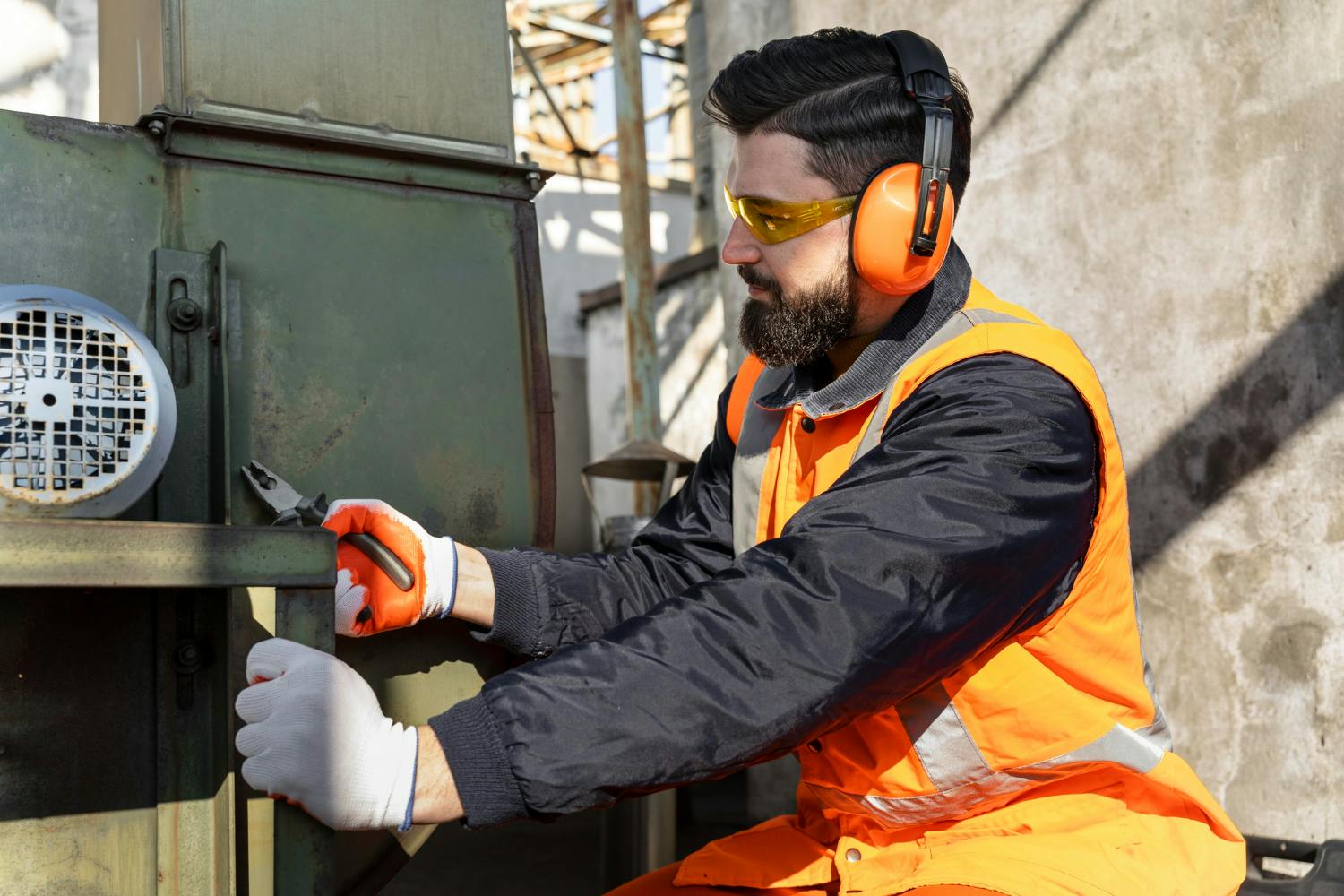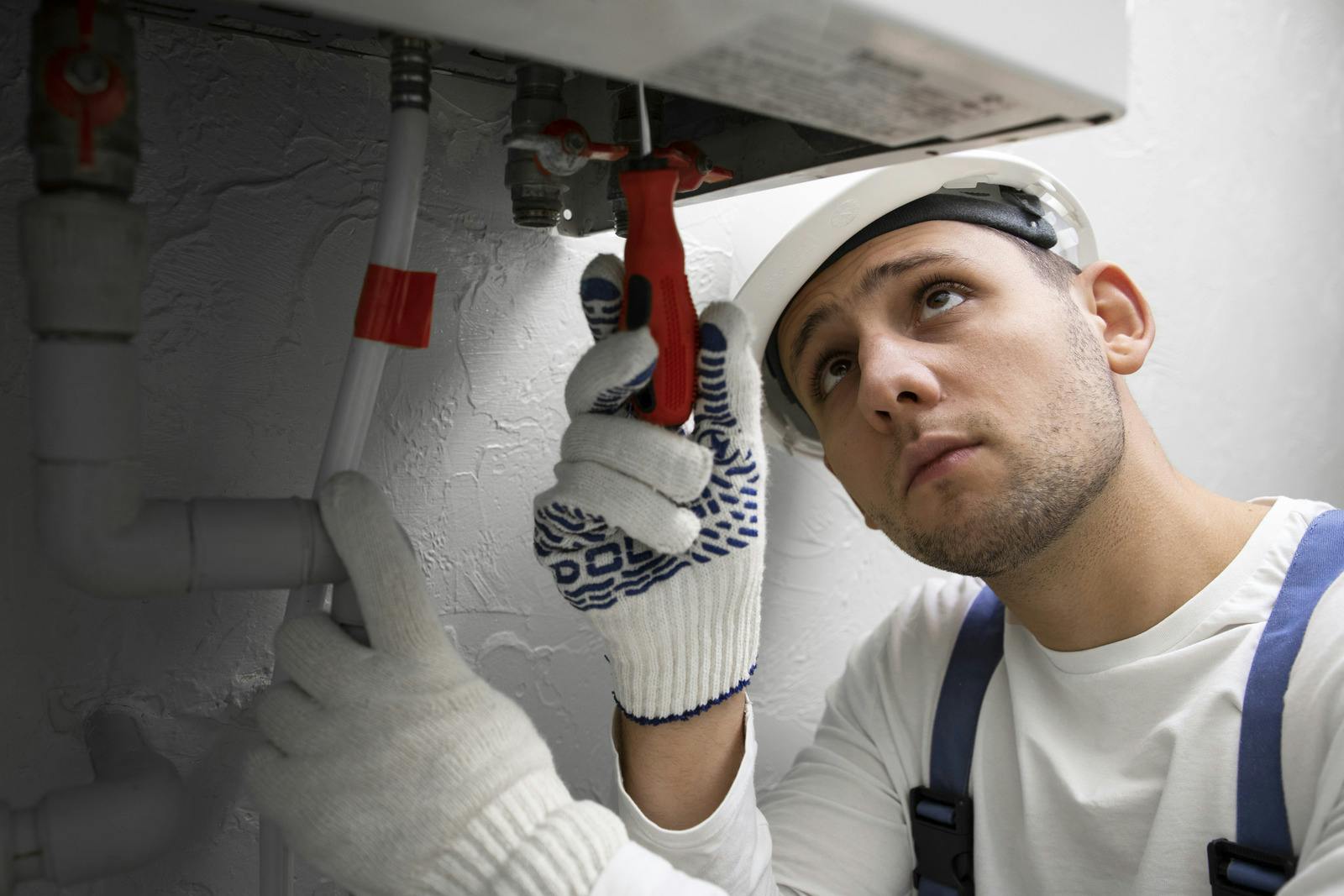Behind the Scenes: Understanding the Technical Aspects of Commercial Air Conditioner Repair and Servicing
For those in the business of keeping commercial spaces comfortable, the realm of air conditioning repair is more than just a matter of switching out filters and adding coolant. In this detailed exploration, we're peeling back the layers of the HVAC system to provide a comprehensive look at the technical aspects of commercial AC repair. HVAC technicians, get ready to deepen your knowledge and efficiency, while also increasing your value in the marketplace.
Introduction: The Critical Role of HVAC Technicians
The maintenance of commercial air conditioning units is a critical aspect of building management, ensuring not only the comfort of occupants but also the protection of sensitive equipment in many industries. HVAC technicians play a pivotal role in this process, relying on a deep understanding of the systems they service, as well as the technical skills required to detect and repair various malfunctions.
But first, it's important to acknowledge the sheer scope of the task at hand. Commercial air conditioning units are colossal in comparison to their residential counterparts. They are responsible for regulating the climate in expansive areas, from office buildings and retail spaces to industrial facilities and healthcare institutions. With such a tremendous workload, these systems require a level of care and expertise that goes far beyond what a DIY enthusiast can provide.
In this article, we will break down exactly what it takes to maintain these workhorses of climate control, from understanding the intricate components of the system to mastering the art of troubleshooting and repair.
Understanding the Technical Aspects of Commercial Air Conditioning
The Inner Workings of a Commercial AC Unit
Commercial air conditioning units are complex machines, consisting of numerous mechanical, electrical, and sometimes even electronic components that work in unison to achieve the desired temperatures. From the evaporator coils to the condenser, every piece has its role in the refrigeration cycle that governs the cooling process.
These systems are commonly either packaged units, where all components are contained in a single housing, or split systems, where the condenser and compressor are located outside the building and the evaporator within. Often, they are set up to serve multiple zones or floors, requiring a delicate balance that can be affected by even the smallest malfunction.

Common Issues and Troubleshooting Techniques
Given the complexity of commercial AC systems, various issues can arise, each signalling a different area of concern within the unit. A drop in cooling capacity, for instance, could point to a refrigerant leak, a faulty compressor, or even air duct obstructions. Therefore, the first step in repair is often meticulous troubleshooting to pinpoint the source of the problem.
Some common troubleshooting steps include:
Checking for proper power supply and voltage levels
Inspecting the ductwork for leaks and blockages
Evaluating the level of refrigerant and looking for leaks in the system
Assessing the condition of electrical components for wear and tear or damage
By understanding the symptoms, technicians can order their diagnostic steps efficiently, minimising downtime for the client.
The Importance of Regular Maintenance
Regular maintenance is the linchpin of commercial air conditioning longevity and efficiency. It not only prevents costly breakdowns but also ensures that the system operates at its peak performance, leading to energy savings and an extended lifespan.
Key maintenance tasks include:
Cleaning and replacing filters as needed
Inspecting and cleaning coils to maximise heat transfer
Lubricating moving parts to reduce friction and energy consumption
Checking refrigerant levels and adjusting if necessary
Maintenance schedules should be tailored to the specific needs and usage patterns of the system, with some components, such as filters, requiring more frequent attention than others.
Enhancing HVAC Knowledge and Expertise
Advanced Repair Techniques and Tools
Beyond the basics of maintenance and troubleshooting, HVAC technicians must also be prepared for more advanced repair techniques and the use of specialised tools. When faced with a leak in the evaporator coils, for example, repairing the issue may require a deep understanding of the system's operation and the use of oxy-acetylene torches for the repair.
Similarly, handling electrical faults demands a thorough knowledge of circuitry and the use of multi-meters to test for short and open circuits. Technicians should be trained in these techniques to be truly effective in their craft.
Safety Protocols and Compliance
Safety in the workplace is paramount, especially when working with high-voltage systems and potentially hazardous materials like refrigerants. HVAC technicians should always adhere to strict safety protocols and maintain compliance with local regulations and industry standards.

Some key safety considerations include:
Wearing personal protective equipment (PPE)
Using lockout/tagout procedures to safely work with electrical components
Ensuring proper ventilation when dealing with refrigerants
Implementing team-based approaches for critical repairs
Proper safety practices are not only for the technician's well-being but also for the protection of the commercial building and its occupants.
Industry Best Practices
As an HVAC technician, staying abreast of best practices in the industry is crucial. This includes being aware of advancements in commercial AC technology, changes in environmental regulations about refrigerants, and new standards for energy efficiency.
Best practices also encompass soft skills, such as customer communication and service transparency. By providing clear explanations of the work being done and the reasons for a particular repair or maintenance task, technicians can build trust and strengthen the client relationship.
SEO Integration: Reaching HVAC Professionals
For this detailed content to reach its intended audience, strategic SEO integration is key. The goal is to rank highly for relevant commercial AC repair and HVAC maintenance keywords to attract the right readership.
Optimising Content and Keywords
Integrating high-impact keywords like "Commercial AC Repair" and "HVAC Maintenance" into the article ensures that it appears in search results for HVAC professionals looking to deepen their knowledge in these areas.
Linking Strategies
Utilising internal links to guide readers to related articles on your website and external links to reputable industry sources adds value to your content and boosts SEO credibility.
Metadata and Alt Text
Creating compelling metadata and ensuring that all images have descriptive alt text helps search engines understand the relevance of your content, ultimately improving your search rank.
Driving Value for HVAC Technicians

Practical Tips for Efficient Repairs
Offering practical tips, such as efficient ways to diagnose common issues or ways to streamline repairs, provides immediate value to HVAC technicians, enhancing their effectiveness on the job.
Training and Certification Opportunities
Highlighting training and certification programs in advanced repair, new technologies, and safety standards promotes continuous learning, a foundational aspect of professional development in the HVAC field.
Networking and Industry Resources
Fostering connections to industry communities and resources encourages knowledge sharing and a collaborative approach to mastering commercial AC repair.
Conclusion: Elevating Expertise in the HVAC Industry
Air conditioning is more than just a luxury—it's a necessity in commercial settings. And behind every humming unit is an HVAC technician adeptly navigating the technical intricacies of repair and maintenance. By honing your technical skills, staying updated on industry trends, and prioritising safety and customer value, you're not just fixing AC units; you're shaping a more comfortable and functional world.
Continuous learning is the hallmark of excellence in the field of HVAC. Incorporating the insights of this article into your professional trajectory is a surefire way to maintain your competitive edge. After all, the better you understand the commercial air conditioners you service, the more effectively you can regulate the environments on which so many depend.